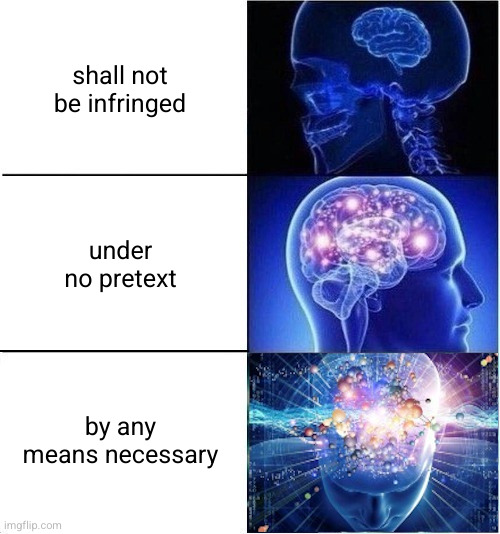If top of the society is immoral psychopaths with power, and most of the society is composed of people with good intentions, then there is not much hope for “beta uprising” until things go way beyond point of recovery, because powerful psychopaths will not let their power get taken away.
Not sure if this is just evolutionary biology, but this cycle of psychopaths at the top has been going on since when, at least ancient Egypt. And in all these thousands of years, the system that enables this cycle got way more reinforced than it got dismantled.
So is it maybe better idea to put benevolent people’s energy towards designing and preparing a new societal system that will have built-in mechanisms for preventing corruption and malevolence? “prepare” as in get ready to implement for when the current messed up system is about to grind to a halt and collapse? Well, it would be best to figure out how to go full Benevolent Theseus™ by replacing parts of currently failing system with the corruption-proof ones.
What are some resources related to this topic? Recearch on societal dynamics, designing political systems, examples of similar revolutions that already happened, etc. Post any links that you consider relevant
Begin teaching media literacy and critical thinking skills in schools.
And budgets in home economics
Liquid democracy is a proposed way to do a direct democracy in a large country. It’s only been tried on very small scales (Google used it to decide which food to get for their cafeterias), so we don’t really know if it would work, but I like the idea.
I’d point out that there are countries which don’t have much corruption or governmental malfeasance. Nordic countries tend to score very well on the Corruption Perception Index, and also have good social safety nets and governments that (generally, for the most part) serve the people. They’re all small countries, though – I suspect that politics becomes an increasingly dirty business the more power a country has.
If you haven’t already, you might want to look into selectorate theory. It essentially shows not only how the psychopaths at the top stay in power, but also why attempts to reform the system often result in a new crop of rulers who are just as bad or worse than those they replaced. (c.f. Cromwell’s revolt, French Revolution, Russian Revolution). A proponent of selectorate theory would argue that the solution is not to remove the psychopaths – it’s to create a system where things in a politician’s selfish interest happen to line up with things that benefit the people. It’s excellently summed up by this video.
In terms of curtailing corporate power from the top down, studying the history of U.S. antitrust law would be a good place to start. Extra Credits has a good series about it.
One reform method that has worked before is unionization. The vast majority of worker protections came about because of labour action. Unions are a lot weaker than they used to be, but it doesn’t have to stay that way. If you can, unionizing your workplace is probably the most impactful action you could take to improve the existing system.
If your tastes are more radical, you could also consider mutual aid societies. A robust one could conceivably Theseus its way into failing institutions, or evolve into a provisional government if everything collapses.
Liquid democracy
Isn’t it obvious this would turn into oligarchy real fast?
I don’t see it as obvious. If anything it makes it harder for vested interests to have an outsized influence, since there are no traditional politicians to bribe. What flaws do you see that I’m missing?
The proxy naming is not anonymous. In normal democracy if Elon Musk wants to buy votes he can in theory pay million people $100 each to vote the way he says that there’s no way for him to verify how they voted. I can take his money and then vote the other way. He wouldn’t know.
With digital voting systems (when those are correctly implemented) what you do is separate the vote signature from the vote’s content. I submit a encrypted vote and sing it with my certificate. It goes to system A which verifies the signatures but doesn’t have the decryption key to check how I voted. After verification the signatures are stripped and encrypted votes are moved to system B (which is air gaped). System B has the decryption key so it decrypts the votes and counts them but since it doesn’t have the signatures anymore it can’t check which vote is mine.
The proxy system cannot function as an anonymous system. Once I pass my vote to someone I also have to able to retract it. Let’s say Elon Musk has 1000 votes and I say I want to retract one. The system needs to be able to check that Elon Musk does in fact have my vote. This means that Elon can pay me for my vote and verify that he actually got it. Which means that rich people will buy votes form the poorest and have greater power than other people. Which will lead to oligarchy.
Getting rid of apathy is the most important step. Too many people say “I’m not interested in politics”.
Politics is everything, it shouldn’t be considered as a legitimate choice to stay away from it.
Organize labor.
Evolve labor strikes from the dark ages with guerilla tactics.
In every company I’ve ever consulted for, there were bottlenecks where a handful of people in key roles not showing up to work would tank the entire operation.
Why the hell are we still striking with everyone walking out instead of everyone clocking in and getting paid and funneling money to keep key roles empty as the coffers burn while revenue drops and payroll still runs?
Why are strikes so often per-company (or worst per-store) instead of per-industry?
In the digital age organization is theoretically much easier than it has ever been.
And yet labor is still playing with the 1920s playbook while corporate is hiring specialized modern talent to combat it.
What about seizing the means of production?
Look at the actors strike, whining about studios using AI to replace them.
Why the hell aren’t the actor unions building their own AI platform for generative performances? It’d unquestionably be a better product working with talent than competitors ostracized by talent. Reminds me of when the MPAA fought against Napster instead of embracing the tides of change and as a result missed the boat on owning digital distribution platforms to Apple and others.
But no. People are scared of change and cling to the status quo even when that isn’t working very well for them.
Embrace change. Focus on progress. Evolve.
If the masses can do that faster and better than the boardroom (which really shouldn’t be that hard as those guys suck at embracing progress and abandoning status quo), then the masses are going to be holding the bag at the end of the changes coming.
If the masses can’t organize enough to stay ahead…
Well, we should probably all learn to enjoy eating cardboard and watching the world burn around us.
If CBT and DBT were taught to kids in school… man, what a change that would make. To be taught at a young age how to control thoughts, cope with stress, face emotions, communicate effectively.
The fact that a vast majority will ignore this discussion, is the same reason why most people will not organise towards a cause.
I have little hope in individuals.
Given up entirely, or are you hoping we all join a hive mind to solve our problems?
I think the best anyone can do is try to make life as good as possible in their mini sphere of influence, their personal bubble of friends and relationships. If everyone did that, society would be better. I’m not sure what to do about psychopaths in power. Maybe deal with the psychopaths in your personal world or aim to reduce your own personal behavior that’s harmful to others?
I’m currently taking a class about this (kinda). The current system, which is, in the states, neoliberal capitalism (redundancy for clarity) encourages people to act immorally, or more accurately under a set of morals that justifies those actions. A different system can encourage a different set of actions to get success, and a different set of morals to justify those actions. This is a large part of politics. The other part is praxis, or getting that in place. I’m not going to share the set of theory I believe in, but rather common ways people try to impose their desired version of society.
One way is through the current system, even if you want to completely change it. This is what the class I am talking about. You identify who has power, why they act the way they do, and how you can get them to enact your policies, or at least gain power yourself. This method falls under a lot of criticism, as it stands to reason that a system built by those in power cannot overthrow them. You can’t use the master’s tools against him.
The other way is revolution, but that has its own problems. It is hard to convince people to completely change everything, and when it does happen, it often happens in the best way possible for those who have power. It also isn’t any more moral than the other options, but that is the nature of changing an immoral system. Welcome to politics.
Disclaimer: I’m by no means an expert, as I am just getting into political theory, both in my own studies and formal education.
According to Walter Scheidel’s The Great Leveler: Violence and the History of Inequality from the Stone Age to the Twenty-First Century, the answer is revolutionary violence.
It’s a fascinating read. I very much recommend the chapter covering the Black Plague. Seems rather relevant nowadays.
Employers lost no time pressuring the authorities to curb the rising cost of labor. Less than a year after the arrival of the Black Death in England, in June 1349, the crown passed the Ordinance of Laborers:
Since a great part of the population, and especially workers and employees (“servants”), has now died in this pestilence many people, observing the needs of masters and the shortage of employees, are refusing to work unless they are paid an excessive salary. . . . We have ordained that every man or woman in our realm of England, whether free or unfree, who is physically fit and below the age of sixty, not living by trade and exercising a particular craft, and not having private means of land of their own upon which they need to work, and not working for someone else, shall, if offered employment consonant with their status, be obliged to accept the employment offered, and they should be paid only the fees, liveries, payments or salaries which were usually paid in the part of the country where they are working in the twentieth year of our reign [1346] or in some other appropriate year five or six years ago. . . . No one should pay or promise wages, liveries, payments or salaries greater than those defined above under pain of paying twice whatever he paid or promised to anyone who feels himself harmed by it. . . . Artisans and labourers ought not to receive for their labour and craft more money than they could have expected to receive in the said twentieth year or other appropriate year, in the place where they happen to be working; and if anyone takes more, let him be committed to gaol.
The actual effect of these ordinances appears to have been modest. Just two years later, another decree, the Statute of Labourers of 1351, complained that said employees, having no regard to the said ordinance but rather to their own ease and exceptional greed, withdraw themselves to work for great men and others, unless they are paid livery and wages double or treble what they were accustomed to receive in the said twentieth year and earlier, to the great damage of the great men and the impoverishing of all the Commons and sought to remedy this failure with ever more detailed restrictions and penalties. Within a generation, however, these measures had failed.
NoBoDy WanTs tO WoRk!!! lol.
Morality is shaped by your material conditions, that is, the society, culture, religion, thinkers etc. that comprise the place you were born and taught, calling the bourgeoisie immoral psychopaths doesn’t really do anything. The way to deal with this is to toss morality aside and see the relations of power for what they are, exploitation of a class by another, as have happened for basically the entirety of human history.
This claims for a solution then, ending the exploitation which necessitates ending the division of classes by preventing that a ruling class comes to existence. This is basically the premise to communism.
The problem with waiting for the current system do collapse is that Capitalism has shown to be much more resilient than expected. The contradictions of capital are intensifying still to this day and more and more people are noticing it, but it is to be expected that the capitalists will do anything they can to keep the machine working.
Trying to change the system from within doesn’t really work, like you said, the ruling class is not gonna let their power get taken way. One example of this is what happened on Chile with elected socialist president Salvador Allende 50 years ago.
A change this big in society doesn’t happen peacefully, it will need a full out revolution that will lead to “injuries”. It is unfortunate and me and, I think, everyone would like it to not be this way, but it is.
Here are some resources for anyone that wants to start learning:
In English:
Socialism for Absolute Beginners by Second Thought
Why Social Democracy Isn’t Good Enough by Second Thought
Will Life Be Better Under Socialism? by Hakim
“Socialism always fails” is a stupid argument by Hakim
How Capitalism sells poverty as modesty & why equality isn’t a practical goal. by Yugopinik
https://dessalines.github.io/essays/
In Portuguese (subbed in english):
Comunismo: princípios básicos e guia de leitura / Communism: basic principles and reading guide by História Pública
make public transport better (pls metro in Tallinn)
Have y’ll tried letting the smart people make decisions?
Yup. Look at how the best-and-brightest theory worked out in the mid 20th century–e.g., the Clintons. Technocracy doesn’t work.
Uh, the Clintons weren’t the smartest amongst us. Smarter than some sure, and that’s a pretty low bar these days, but I lived through that era. We were not governed by our smartest, by any stretch.
Yup, but it’s a question of whom society recognizes as smart. Bill and Hill met at Yale. They sold us a bill of good with free trade. They thought they could get away with Hillary crafting a national healthcare system, almost in secret, and that everyone would accept it b/s she’s brilliant. Obama, Columbia/Harvard/Univ of Chicago, bailed out bankers, not home owners. That was a disaster.
The term, best and brightest, came into common use in describing to the Kennedy adminstration. https://en.wikipedia.org/wiki/The_Best_and_the_Brightest They really bungled Vietnam.
I don’t know that we’ve ever been governed by the best and brightest. Sometimes I think we’re governed by the most venal and greedy.
It’s objectively not, though?
If it were, well, that’s been explored in Idiocracy.
The point isn’t that we should give the reins to the “smartest”, but the actual smartest, for a change.
This is called “technocracy”, and while it’s cool on paper, it leads to a disconnect between the people in charge and the actual problems of the people.
Take good care of yourself and always claim the rest you need - don’t let anyone call you lazy, disabled or mentally ill for working during as many hours of the day as you want. Being productive is not a virtue.
After you have spent enough time resting: support your local mutual aid circle, or (help) create one. Use your talents and skills to help and support others in your community as much as you can afford. Try and work without participation from the existing authorities (not always possible, but at least don’t seek their support unless you have to), basically create your own self-government infrastructure within the crumbling ruins of the old society - like a new tree growing in a hollow stump.
guns, more guns.
how about bigger guns?
but from the left ✊

Stop caring about intentions. Stop giving the stupid a free pass. Treat stupidity as a type of malice, and act accordingly.
I believe that this alone should be enough to address the sykos on power. Easier said than done.
Bonhoeffer says stupidity is a social thing. I mostly agree. Things didn’t turn out well for Bonhoeffer. Shoveling against the tide is exhausting.
How on earth would you decide who is stupid? And why are you the one to judge everybody’s intelligence? Fuck off fascist
Read the rest of the comment chain. As I already said, you don’t need to decide which sort of behaviour is stupidity or not; you just stop trying to decide what’s “intentional”.
In no moment I said or even implied that I shall be “the one to judge”. So stop making shit up.
And no, I am not fascist. Again, stop making shit up.
Also, you’re being a great example of what I’m talking about, because odds are that you’re full of “good intentions” behind your little witch hunt, but you’re effectively contributing with fascists by giving them a reasonable cover and desensitising people towards the word. Just like the boy who cried wolf contributed with the wolves.
‘Stop giving the stupid a free pass’ - the kindly explain to me who are these ‘stupid’ you are referring to in your original comment?
the[n] kindly explain to me who are these ‘stupid’ you are referring to in your original comment?
That’s the same as “I just made shit up about you, but I demand you to spoonfeed me because I’m entitled.” Sorry but the world does not revolve around your belly, and I’m not wasting my time with you, go be a self-demonstrating example elsewhere.
For other posters who might be reading this: what I’m considering “stupidity” and “the stupid” is already hinted by this, this and this. I can bring up some more formal definition if someone really wants, but the point is that it should not matter - take off “intentions” from the equation when handling people, stop giving people a free pass to cause harm because “oh no, that person is stupid, not malicious”.
No, I don’t let you off your self-constructed hook so easily.
From your other comments I can thus read:
- the intellectually disabled are not considered to be among the stupid (I wonder whether that includes people on the spectrum as that would luckily leave me out of your ideas of sanitizing society
- stupid seems to have to do with people’s behaviour being harmful towards others. Why of all available terms
That’s not sufficient information to start persecuting other people. And I don’t care if you cook up the definition of who is stupid all by yourself or if it’s you plus a select group of pseudo-enlightened friends. The underlying idea is ‘remove people who show unwanted behaviour’ - and I think that approach to running a society has a name.
Who decides what is stupid and what isn’t? There better be a good, clear, obvious, and universal objective method of identifying stupidity if you’re going to treat it as malicious.
At some point, does it matter?
Give people the resources to educate themselves. Give them the benefit of the doubt, once. But after that? Screw 'em. Move on without 'em.
I think it does matter what you define as being stupid, yes. Let’s say that I want to call being transgender, not having enough money to buy food, and being an immigrant all stupid. I should treat those things as malice because they’re stupid, right?
I mean, people do treat those things as malicious already. So if anything returning the same treatment would be fair-play.
But more to the point, I don’t think that’s analogous to what the above posters was trying to say? A person “being” transgender/poor/an immigrant isn’t the same as say, a person denying climate change.
And that’s how I read the above commenter. There are two reasons for people to hold a climate-change-denying view, ignorance and malice. Ignorance can be met with education. But if a person begins holding onto their ignorance, their actions are fundamentally indistinguishable from malice.
I assumed it was a comment about the tactics we decide to employ when dealing with people. And at a certain point, if a person is stupid or if they’re malicious… Well it sorta does not matter.
Okay, sure, what about vaccines then? Hypothetically, I think the idea that we shoot ourselves full of mercury and viruses is extremely stupid. Malicious too, by your model. And also, I don’t think climate change is real, so now I think you’re stupid and you think I’m stupid and it’s he said she said and if we both think the other is being malicious we have a brawl. The thing that fixes this is a definition of “stupid” that we both agree on that is clear, useful, and objective. What is that definition?
Yeah I still think you are talking about something else?
Okay, sure, what about vaccines then? Hypothetically, I think the idea that we shoot ourselves full of mercury and viruses is extremely stupid. Malicious too, by your model. And also, I don’t think climate change is real, so now I think you’re stupid and you think I’m stupid and it’s he said she said and if we both think the other is being malicious we have a brawl.
In reality though some people are right and some people are wrong. The person who talks about vaccines as just “shooting ourselves full of mercury and viruses” is either stupid or malicious. What they think of me doesn’t matter, because this conversation is about how I should treat this hypothetical person.
And that was the point I made. Ultimately it doesn’t matter if they are stupid or malicious, I should treat them the same way. Because their intent doesn’t really matter, their actions do.
The thing that fixes this is a definition of “stupid” that we both agree on that is clear, useful, and objective. What is that definition?
That is not how language or communication works…
People who are thought of as stupid, rarely agree that they are stupid. Same goes for malicious, to be honest.
Exactly. So we can’t just “Treat stupidity as a type of malice”, because nobody can agree on what is and isn’t stupidity.












